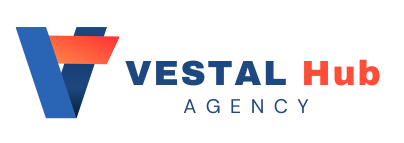In the ever-evolving landscape of search engine optimization (SEO), mastering on-page SEO is essential for achieving higher search rankings and driving organic traffic to your website. Welcome to the world of On-Page SEO Best Practices, where every element of your webpage plays a crucial role in determining its visibility and relevance to search engines. In this comprehensive guide, we’ll uncover the key strategies and techniques to optimize your on-page elements effectively and propel your website to the top of search engine results pages (SERPs).
Understanding On-Page SEO
On-page SEO refers to the optimization of individual web pages to improve their search engine rankings and attract more organic traffic. It involves optimizing various on-page elements, including meta tags, headings, content, and images, to align with search engine algorithms and user intent.
Crafting Compelling Title Tags
Title tags are one of the most critical on-page SEO elements, as they directly impact click-through rates and search engine rankings. Craft concise, descriptive title tags that accurately reflect the content of your webpage and include relevant keywords to improve visibility and relevance in search results.
Optimizing Meta Descriptions
Meta descriptions provide a brief summary of your webpage’s content in search engine results. Write compelling meta descriptions that entice users to click through to your website while incorporating relevant keywords to improve search visibility and user engagement.
Harnessing the Power of Header Tags
Header tags (H1, H2, H3, etc.) help structure your content and provide context to search engines about the hierarchy of information on your webpage. Use descriptive header tags to organize your content logically and include primary and secondary keywords to signal relevance to search engines.
Creating High-Quality Content
Content is king in the world of SEO, and creating high-quality, relevant content is essential for on-page optimization. Ensure your content is well-written, informative, and tailored to meet the needs of your target audience. Incorporate relevant keywords naturally throughout your content to improve search visibility without sacrificing readability.
Optimizing Image Alt Text
Image alt text provides context to search engines about the content of images on your webpage. Optimize image alt text with descriptive, keyword-rich phrases to improve image search visibility and accessibility for users with disabilities.
Improving Page Load Speed
Page load speed is a critical factor in both user experience and search engine rankings. Optimize your webpage’s loading speed by minimizing file sizes, leveraging browser caching, and optimizing images to provide a seamless browsing experience for users and improve search engine rankings.
Mobile-Friendly Design
With the rise of mobile search, optimizing your webpage for mobile devices is essential for on-page SEO success. Ensure your webpage is mobile-friendly by using responsive design techniques and optimizing for mobile usability to provide a positive experience for mobile users and improve search rankings.
Implementing Schema Markup
Schema markup is a form of structured data that provides additional context to search engines about the content of your webpage. Implement schema markup to enhance your search listings with rich snippets and improve visibility in search results.
Monitoring and Iterating
Effective on-page SEO is an ongoing process that requires monitoring, analysis, and iteration. Use tools like Google Analytics and Google Search Console to track key performance metrics, identify areas for improvement, and refine your on-page optimization strategy based on data-driven insights.
Conclusion
On-page SEO best practices are essential for optimizing your webpages to improve search engine rankings and attract more organic traffic. By implementing the strategies and techniques outlined in this guide, you can enhance the visibility, relevance, and usability of your webpages and achieve higher rankings in search engine results pages. So, why wait? Start optimizing your on-page elements today and unlock the full potential of your website in the digital landscape.

